Ramadan Garden – The faces of the Islamic world
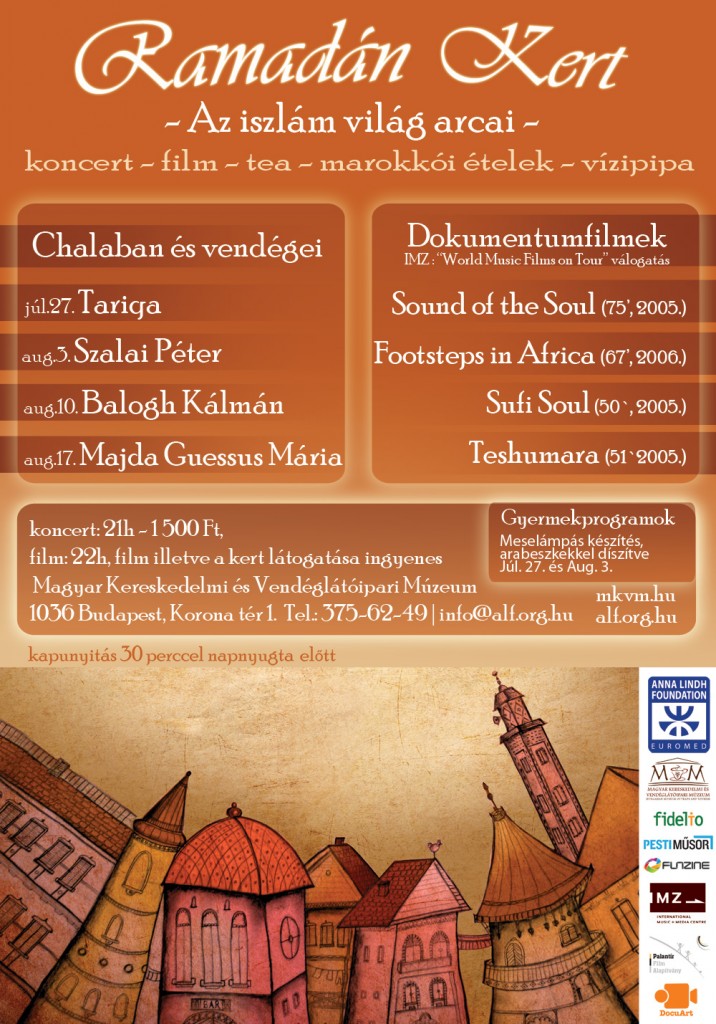
Although the religious immersion is an essential element of the ceremony, the explicit purpose of the Ramadan Garden is to familiarize the Arab culture, art and gastronomy with the interested visitors. In this spirit, from the 27th of July during four sequential Fridays the Garden will offer concerts, WOMEX music films, oriental flavors and children’s programs where the guests can insight into the Arab world which often seems mysterious, but on second thought this is a very friendly and anthropocentric world.
Ramadan Festival
Hungarian Museum of Commercial and Catering trade – Kultea
Adress: Budapest, III. Korona tér 1. (earlier name of the square: Dugovics Titusz tér 1.) (Click here for Google Maps)
27th of July 2012
3rd of August 2012
10th of August 2012
12th of August 2012
The gate opens 30 minutes before sunset. The concerts tickets are available in limited numbers, for 1500 HUF, to visit the garden and all the other programs are free. Ticket booking and information: Tel.: 061-375-62-49
e-mail: mkvm@iif.hu
![]() Then event on Facebook: http://www.facebook.com/events/383208191734490
Then event on Facebook: http://www.facebook.com/events/383208191734490
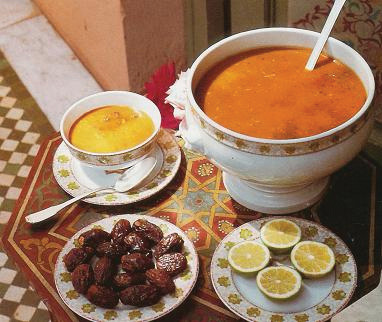 Each day during the month of Ramadan, when the sun goes down, a Muslim can then stop fasting. This is often termed “breaking the fast” or Iftar in Arabic. Muslims often visit family and friends during the month to have Iftar, a meal together. In this spirit, in every occasion, after the sunset there will be a joint dinner in an original Moroccan-style tent. In this rich menu will stand an authentic Moroccan soup (Harira), dates, fruit juices, sweets and mint tea and it will not missing the distinctive scent of water pipes neither.
Each day during the month of Ramadan, when the sun goes down, a Muslim can then stop fasting. This is often termed “breaking the fast” or Iftar in Arabic. Muslims often visit family and friends during the month to have Iftar, a meal together. In this spirit, in every occasion, after the sunset there will be a joint dinner in an original Moroccan-style tent. In this rich menu will stand an authentic Moroccan soup (Harira), dates, fruit juices, sweets and mint tea and it will not missing the distinctive scent of water pipes neither.
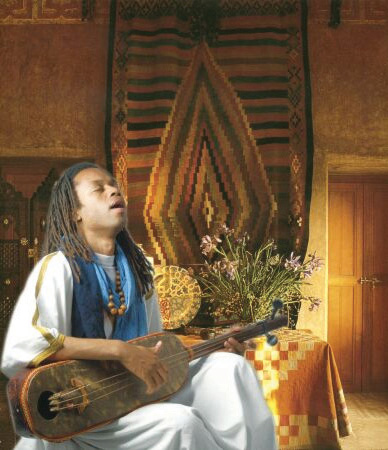 In the evenings the Moroccan Saïd Tichiti and his band, the Chalaban will do the honours of the house. After the meals, the band will invite the visitors to varied musical journeys. They invite for each event different guest artist from the Hungarian jazz and ethno music community, who conjure the traditional North African Berber and Gnawa music into virtuoso world music. On the 27th of July, will step up the Tariq hallmarked with the name of Mihály Dresch , then on the next occasions Chalaban will make the music with the percussionist and Indian tabla player Peter Szalai (3rd Aug) , after with the cimbalom player Kálmán Balogh (10th Aug) and eventually with the the singer Maria Majda Guessus (17th Aug).
In the evenings the Moroccan Saïd Tichiti and his band, the Chalaban will do the honours of the house. After the meals, the band will invite the visitors to varied musical journeys. They invite for each event different guest artist from the Hungarian jazz and ethno music community, who conjure the traditional North African Berber and Gnawa music into virtuoso world music. On the 27th of July, will step up the Tariq hallmarked with the name of Mihály Dresch , then on the next occasions Chalaban will make the music with the percussionist and Indian tabla player Peter Szalai (3rd Aug) , after with the cimbalom player Kálmán Balogh (10th Aug) and eventually with the the singer Maria Majda Guessus (17th Aug).
The Hungarian Network of the Anna Lindh Foundation as an international network of NGO’s with the purpose to promote the intercultural dialogue also connected to the program series. In the afternoons the network offers handicraft occupations for the children about the Arab art motifs and the evenings it make more colorful the Ramadan Garden by free film screenings from the music documentary collections of the WOMEX and the IMZ Media Center “World Music Films on Tour”. The films will be shown in their original language, the screenings organized by the Palantír Film Visual Anthropological Foundation.
![]()
The programme in details:
10th of August 2012
19:40 – gate opening
20:10- Iftar, meal together
21:00 Chalaban concert
special guest: Kálmán Balogh – dulcimer
Chalaban Band was founded in Budapest by the Moroccan musician Said Tichiti in 1999. The band is very dynamic in the world music scene in Central and Eastern Europe. The Band is testing a very original opening of the Moroccan music to the music traditions of Central Europe, Balkan and gypsy styles. The group’s leader, Said Tichiti is originally from city of Guelmim in the south of Morocco. He finished his High studies on Drama Institute of Rabat. He chose at the beginning of his musical adventure to work on musical styles of his paternal and maternal origins: Gnawa, Ganga, Hassani, and Guedra. This work goes beyond folk vision to create a merger between instruments and melodies of south and north, east and west. The result is that each Chalaban concert / album is full of desert and spirituality caressed by melancholic melodies of Central Europe ending with an air of trance. Chalaban has 5 albums until now: Moroccan Nomad, Moroccan Spring, Al Baraka, Nejdeb and Hashish Freee.
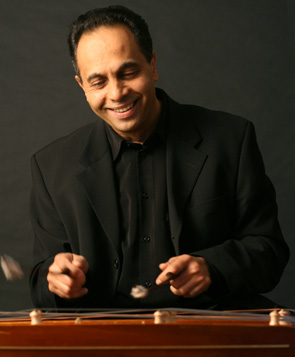 Kálmán Balogh is one of the foremost Hungarian cimbalom players, descending from a famous dynasty of Hungarian Gypsy musicians. His virtuosity is matched only by his understanding and respect of his heritage. A graduate of Ferenc Liszt Academy of Music of Budapest, he has completed many successful tours throughout the world with various ensembles, including five tours in North America. In 1985 he was awarded the Hungarian distinction of “Young Master of Folk Arts”, and two years later he won second prize in the Aladár Rácz cimbalom-competition. He plays mostly authentic folk music from Hungary and from the Balkans, though during the last years he has played with jazz groups, rock bands and a symphony orchestra, too. As an artist he has performed with such Hungarian bands as Jánosi, Ökrös, Téka, Méta, Muzsikás, Zsarátnok, Vízöntő, Vasmalom, the Swedish Orient-Express, the Dutch Sultan and Ot Azoj, the English Transglobal Underground, the American Peter Ogi and the Joel Rubin Jewish Ensemble. He was musical director of the “Magneten Gypsy Show” of Andre Heller and also performed on a CD with the Budapest Festival Orchestra playing Brahms’ Hungarian Dances. In 1997, he performed with the Brooklyn Philharmonic Orchestra and also with the Miami Philharmonic Orchestra. The cimbalom, a sort of oversized hammer dulcimer played with mallets like a vibraphone, possesses piano like percussive abilities to drive a band rhythmically or take the melodic lead. In Kálmán Balogh’s expert hands, the cimbalom can do both simultaneously. His mastery of this unique and rare Hungarian folk instrument has mesmerized audiences.
Kálmán Balogh is one of the foremost Hungarian cimbalom players, descending from a famous dynasty of Hungarian Gypsy musicians. His virtuosity is matched only by his understanding and respect of his heritage. A graduate of Ferenc Liszt Academy of Music of Budapest, he has completed many successful tours throughout the world with various ensembles, including five tours in North America. In 1985 he was awarded the Hungarian distinction of “Young Master of Folk Arts”, and two years later he won second prize in the Aladár Rácz cimbalom-competition. He plays mostly authentic folk music from Hungary and from the Balkans, though during the last years he has played with jazz groups, rock bands and a symphony orchestra, too. As an artist he has performed with such Hungarian bands as Jánosi, Ökrös, Téka, Méta, Muzsikás, Zsarátnok, Vízöntő, Vasmalom, the Swedish Orient-Express, the Dutch Sultan and Ot Azoj, the English Transglobal Underground, the American Peter Ogi and the Joel Rubin Jewish Ensemble. He was musical director of the “Magneten Gypsy Show” of Andre Heller and also performed on a CD with the Budapest Festival Orchestra playing Brahms’ Hungarian Dances. In 1997, he performed with the Brooklyn Philharmonic Orchestra and also with the Miami Philharmonic Orchestra. The cimbalom, a sort of oversized hammer dulcimer played with mallets like a vibraphone, possesses piano like percussive abilities to drive a band rhythmically or take the melodic lead. In Kálmán Balogh’s expert hands, the cimbalom can do both simultaneously. His mastery of this unique and rare Hungarian folk instrument has mesmerized audiences.
22:00 film screening: Sufi Soul – The Mystic Music of Islam (50’, 2005. language: English)
With a dogmatic and fundamentalist view of Muslims increasingly predominant in the Western media, there has never been a more important time to show an alternative view of Islam. Sufism is the mystical dimension of Islam that preaches peace, tolerance and pluralism. And it encourages music, which is seen as a way of getting closer to God. Sufi music is literally some of the most ecstatic in the world. This documentary by Simon Broughton looks at Sufism and its music in different part of the Islamic world – Syria, Turkey, Pakistan and Morocco. It follows the development of Sufism, reveals the views and beliefs of devotees, examines the growing threat from fundamentalist Islam and includes fantastic performances from some of the greatest Sufi musicians.

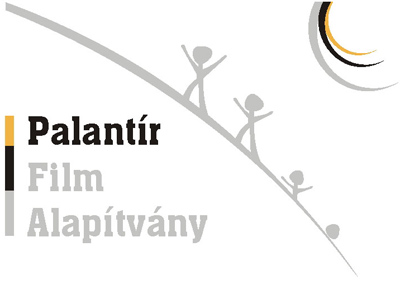
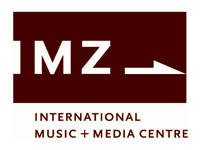
www.docuart.hu www.palantirfilm.hu www.imz.at
This movie is part of World Music Films on Tour, a non‐profit distribution initiative of IMZ. The screening is organized by Palantir Film Visual Anthropology Foundation
More info about the film: http://www.worldmusicfilms.com/index.php?id=231
![]()
17th August 2012
19:45 – gate opening
20:15 (sunset) Iftar, meal together
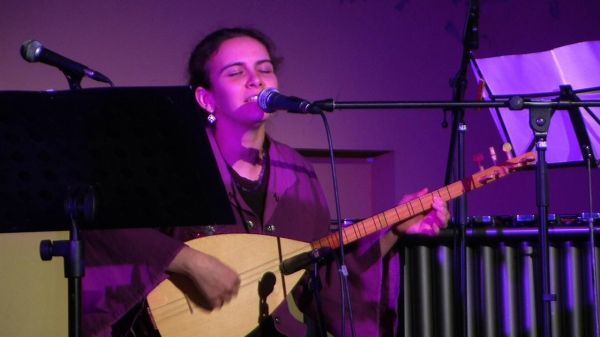 21:00 Chalaban concert
21:00 Chalaban concert
special guest: Maria Majda Guessous – vocals
Chalaban Band was founded in Budapest by the Moroccan musician Said Tichiti in 1999. The band is very dynamic in the world music scene in Central and Eastern Europe. The Band is testing a very original opening of the Moroccan music to the music traditions of Central Europe, Balkan and gypsy styles. The group’s leader, Said Tichiti is originally from city of Guelmim in the south of Morocco. He finished his High studies on Drama Institute of Rabat. He chose at the beginning of his musical adventure to work on musical styles of his paternal and maternal origins: Gnawa, Ganga, Hassani, and Guedra. This work goes beyond folk vision to create a merger between instruments and melodies of south and north, east and west. The result is that each Chalaban concert / album is full of desert and spirituality caressed by melancholic melodies of Central Europe ending with an air of trance. Chalaban has 5 albums until now: Moroccan Nomad, Moroccan Spring, Al Baraka, Nejdeb and Hashish Freee.
 22:00 film screening: Teshumara – The guitars of the Tuareg Revolution
22:00 film screening: Teshumara – The guitars of the Tuareg Revolution
Shortly after the independence of Mali in 1963, the new government began a campaign of oppression against the Tuareg people of the Sahara desert. Teshumara documents the Tuareg rebellion, not just through violent clashes but the new form of music that emerged. Bluesy rock rhythms ringing from electric and acoustic guitars detail the struggles of the Tinariwen, “people of the desert,” and testify to the power of music to unite and empower.


www.docuart.hu www.palantirfilm.hu
The screening is organized by Palantir Film Visual Anthropology Foundation.
![]()
Past events in the series of Ramadan Garden
27th July 2012
15:00-16:30 Workshop for kids – Paperlamp creation with Arabic ornaments and calligraphy
Fairy Lantern making on the workshop of Amarant Association. Children can create paper lamshades decorated with the Arabic and Islamic culture geometric motifs. While the lamp is made, children get acquainted with the beauty of the Arabic letters, calligraphy and arabesques.
 photos (c) Rózsa Zsuzsanna - www.fotorozsa.com
photos (c) Rózsa Zsuzsanna - www.fotorozsa.com
20:25 (sunset) Iftar, meal together
21:00 Tariqa concert
Darrell Jónsson
credits
Dresch Mihály – saxophone, furulya
Kovács Ferenc – violin, trumpet, voice
Halmos András – drums
In a world increasingly polarized by religious conflicts and fundamentalist forces, “Sound of the Soul” is a timely, thought-provoking cinematic journey, reverberating with unity, understanding, and most of all, hope. Award-winning director Stephen Olsson’s new film offers viewers a vivid, multi-layered portrait of both an open-minded Arab city and Morocco’s Fez Festival of World Sacred Music – an exceptional event that invites Muslim, Christian and Jewish men and women to perform in public at its historic sites. An inspiring antidote to spreading sectarian violence and global threats of a “clash of civilizations”, “Sound of the Soul” ultimately reveals the essential connection between all religions and faiths.



www.docuart.hu www.palantirfilm.hu www.imz.at
This movie is part of World Music Films on Tour, a non‐profit distribution initiative of IMZ. The screening is organized by Palantir Film Visual Anthropology Foundation
More info about the film: http://www.worldmusicfilms.com/index.php?id=233
![]()
3rd August 2012
15:00-16:30 Workshop for kids – Paperlamp creation with Arabic ornaments and calligraphy
Fairy Lantern making on the workshop of Amarant Association. Children can create paper lamshades decorated with the Arabic and Islamic culture geometric motifs. While the lamp is made, children get acquainted with the beauty of the Arabic letters, calligraphy and arabesques.

photos (c) Rózsa Zsuzsanna - www.fotorozsa.com
19:45 – gate opening
20:15 (sunset) Iftar, meal together
 21:00 Chalaban concert – special guest: Peter Szalai – percussion
21:00 Chalaban concert – special guest: Peter Szalai – percussion
Péter Szalai plays North-Indian classical music and is one of the best west-born tabla musicians of our time.
22:00 film screening: Footsteps in Africa: A Nomadic Journey (67’, 2006.)
Footsteps in Africa, A Nomadic Journey is a cinematic feature length ethnographic film. It is an exciting visually narrated art documentary accompanied by a diverse musical score. Shot in January 2006 as a road trip film in the Sahara desert of Mali, Kiahkeya performers and a renegade camera team lived together with the nomadic Tuareg/Kel Tamashek tribes in remote areas of Mali near Mauritania, and visited Tuareg Festivals. The film’s themes question the modern way of life, which separates man from nature. The Tuareg choose to live in austerity, a truth of extremes within which lies the the poetry of the Tuareg way of life, living in solidarity with the rhythms of nature.



www.docuart.hu www.palantirfilm.hu www.imz.at
This movie is part of World Music Films on Tour, a non‐profit distribution initiative of IMZ. The screening is organized by Palantir Film Visual Anthropology Foundation
More info about the film : http://www.worldmusicfilms.com/index.php?id=563



